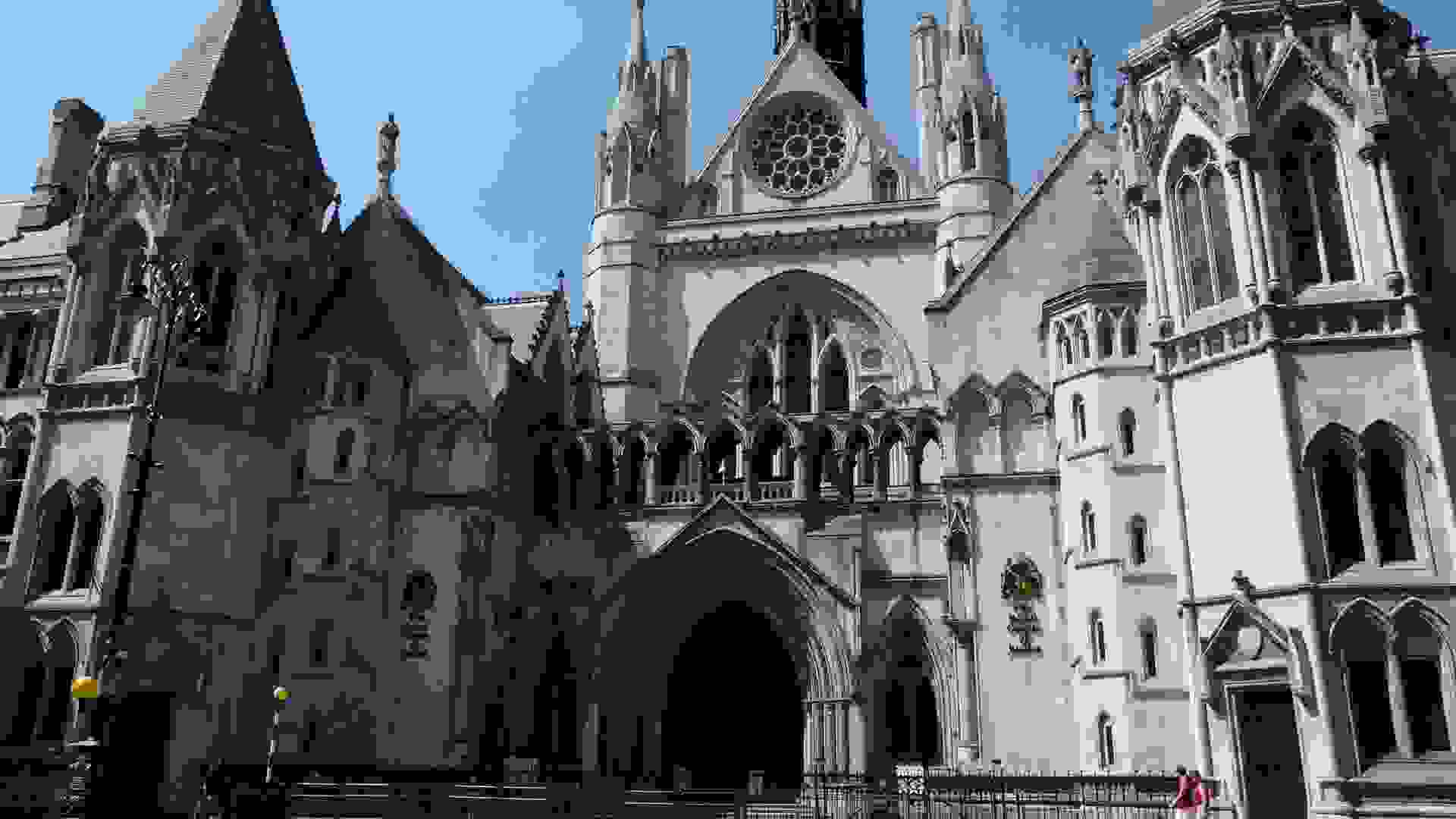Did you get the memo? Post-legislative scrutiny and the case of judicial review
Thu. 12 Nov 2020
The government has established an independent review of judicial review – but post-legislative scrutiny has not yet been conducted on the previous reform of the system, in the Criminal Justice and Courts Act 2015. This is typical of the low priority given to post-legislative scrutiny by both government and Parliament.

, Hansard Society
Edward Chesterman
Edward Chesterman
Intern, Autumn 2020, and Politics undergraduate, University of Hull, Hansard Society
Get our latest research, insights and events delivered to your inbox
Share this and support our work
The government’s current examination of judicial review grew out of the Conservative Party’s commitment, on page 48 of its 2019 general election manifesto, to establish in its first year in office a ‘Constitution, Democracy & Rights Commission’ to examine constitutional issues including “access to justice for ordinary people”. The party promised to “ensure that judicial review is available to protect the rights of the individuals against an overbearing state, while ensuring that it is not abused to conduct politics by another means or to create needless delays.”
There has been little sign of the promised Commission, and it appears that the initiative may materialise instead as a series of smaller, more focused reviews. The review of judicial review – officially, the Independent Review of Administrative Law (IRAL) – was launched at the end of July under Lord Faulks QC, with a report promised by the end of the year.
However, post-legislative scrutiny (PLS) has not yet been conducted on the previous set of reforms to judicial review, made in the Criminal Justice and Courts Act 2015. This is despite the fact that PLS of an Act is normally undertaken three to five years after Royal Assent. (There are a limited number of exceptions, including Consolidation Acts, Finance Acts, etc.)
Part 4 of the 2015 Act reformed arrangements for the funding of judicial reviews, changed the power of the court to refuse to hear claims, and made provision for the disclosure of information about individuals and organisations which fund judicial review.
In September 2020, the Shadow Justice Secretary, David Lammy MP, asked the Justice Secretary “what assessment he has made of the effectiveness of the reforms made by Part 4 of the Criminal Justice and Courts Act 2015”; but Chris Philp, Parliamentary Under-Secretary of State at the Home Office, replied only that the government “continue to keep the provisions of the legislation under review”. Mr Philp said that IRAL “is examining whether there is a need to reform judicial review”.
The government really should have produced a post-legislative scrutiny memorandum on the last set of judicial review reforms, of 2015, before setting up an independent panel, outside Parliament, to review judicial review.
Without a post-legislative scrutiny process for the 2015 Act, establishing a non-parliamentary panel to review judicial review undermines the principle of PLS and particularly the role of Parliament and its committees in being able to conduct this form of scrutiny. It also potentially deprives the review of the valuable information that could come from a parliamentary PLS inquiry.
Post-legislative scrutiny (or review) investigates the outcome of legislation and whether it has been implemented effectively and achieved its intended purpose.
In the UK, the standard process for post-legislative scrutiny is:
The government normally produces a memorandum on an Act three to five years after it achieves Royal Assent. As the Cabinet Office Guide to Legislation sets out, departments “should draw up a timetable for producing a memorandum to meet the three-to-five-year deadline, taking into account other review processes”. Exceptionally, a department may propose to the relevant select committee that PLS should not be undertaken, but this is largely confined to situations where an Act has already been repealed, or has limited policy significance. A department may also exceptionally propose a different timeline to the committee, beyond five years; but it is for the committee to decide whether to accept the departmental proposal.
Having received the government’s memorandum, scrutiny committees in both Houses covering relevant policy areas decide whether to make the Act the subject of an inquiry. There may be no need for post-legislative scrutiny, but this is a decision for the committee(s) alone.
If they decide to undertake PLS, the parliamentary committee(s) conduct(s) an examination of the Act much as they carry out any other committee inquiry: opening a call for written evidence; conducting oral hearings; and producing a report to which the government is expected to respond.
As Lord Norton has pointed out, the way in which the two Houses conduct post-legislative scrutiny differs.
In the House of Commons, PLS is conducted by the relevant departmental select committee or other permanent scrutiny committees.
In the House of Lords, a PLS inquiry is typically carried out by a temporary committee established for the purpose. (Lords temporary scrutiny committees were previously known as ‘ad hoc’ committees; they are now styled ‘special inquiry’ committees.)
In the Commons, the driver for undertaking post-legislative scrutiny by committee is thus the committee members. In the House of Lords, it is the whole House (which must agree to establish any special inquiry committee).

This committee distinction feeds through into further differences between the two Houses. The House of Lords is more proactive on post-legislative scrutiny than the Commons: the Lords Liaison Committee (which recommends the special inquiry committees that the House should establish) has a practice of backing the creation of one PLS special inquiry committee per year. The Lords also generally takes longer over the PLS task.
In contrast to the dedicated PLS committees established by the Lords, the permanent scrutiny committees in the Commons bear the brunt of all policy scrutiny, and rarely find enough time to carry out PLS, or to spend significant time on it when they do. This is despite the fact that post-legislative scrutiny is one of the ‘core tasks’ for Commons select committees identified by the Commons Liaison Committee, and should thus be prominent among their activities.
Dr Thomas Caygill of the University of Hull has shown that out of 344 eligible Acts passed between the start of the 2005 Parliament and the 2017 general election, only 7.6% underwent either formal or informal post-legislative scrutiny. Committees of either House conducted some form of post-legislative scrutiny in 61 instances, of which only 20 were formal PLS inquiries.
Committees are doing little post-legislative scrutiny partly because of time constraints, especially in the Commons, as outlined above. Compared to the Commons, the Lords – who have fewer such constraints – get more PLS done.
When PLS does take place, the recommendations made by committees are rarely accepted, and may be ignored. This may act as a disincentive to committees and parliamentarians to undertake PLS. Caygill shows that of the recommendations made by committees in 17 PLS reports between 2005 and 2016, 61% were either rejected or ignored or received an indeterminate response. Only 39% were accepted, in part or in full.
Moreover, the proportion of recommendations accepted by the government declined steadily as the strength of the recommendations went up – from 52% for recommendations of only ‘small’ government actions, to zero for recommendations of ‘large’ government actions. This could steer committees to make only weak recommendations, in the interests of seeing them accepted.
However, as Meghan Benton and Meg Russell’s analysis of select committees has shown, this take-up rate for recommendations is not unusual; and the making of successful formal recommendations is, in any case, just one form of select committee influence on policy-makers. Problematically, however, a low ‘success rate’ for recommendations may affect the value that parliamentarians, particularly MPs, place on the PLS process.
Post-legislative scrutiny appears to be seen as an unattractive final step in the legislative process – like having to do the washing-up after cooking and eating a slap-up meal.
Post-legislative scrutiny is a vital part of the legislative process. It is right that it is a core committee task for this reason.
Law-making should not be confined to a process that ends with Royal Assent, and Parliament’s role should not stop at that point. If post-legislative scrutiny is used properly, the measure of success shifts from achieving Royal Assent to whether an Act has achieved its purpose. There is little point in Parliament making law if it does not know whether the legislation achieved its intended objective. Knowing what worked – or did not – is key in making better law, creating legislation that is more effective and thereby helping to ensure that the law is implemented in practice and the resources directed towards law-making are not wasted.
Post-legislative scrutiny should be seen as a positive process for both government and Parliament.
In evidence to the House of Commons Liaison Committee's 2019 inquiry into the Commons’ select committee system, the Hansard Society recommended the creation of a permanent, dedicated Post-Legislative Scrutiny Committee, either in the Commons only or as a joint committee with the Lords. The committee would have the option to have sub-committees to enable it to consider more than one Act at a time if desirable.
A permanent committee would ensure a dedicated focus on PLS, contributing to the ‘circle of learning’ among parliamentarians about policy development and the legislative process, while increasing the volume of PLS undertaken and relieving a source of workload pressure on departmental and other policy scrutiny committees.
In the present circumstances, the existence of such a committee might also have made it less likely that the review of judicial review would go ahead without the contribution that can be made by rigorous post-legislative scrutiny.
More
Related
Blog / "Will they come when you do call for them?": Should select committees have real power to compel evidence?
In a recent report the House of Commons Privileges Committee recommended the creation of a new criminal offence to deal with the rare problem of recalcitrant select committee witnesses. The proposal is narrow and looks workable. However, it remains controversial, and the Committee has invited further views, with final proposals expected later in 2021.
Guides / Financial Scrutiny: the Budget
In order to raise income, the government needs to obtain approval from Parliament for its taxation plans. The Budget process is the means by which the House of Commons considers the government’s plans to impose 'charges on the people' and its assessment of the wider state of the economy.
Briefings / Who chooses the scrutineer? Why MPs should resist the government's attempt to determine the Liaison Committee chair
Should the Liaison Committee have as its chair someone who is not simultaneously a select committee chair, and should the identity of that person be determined by the government? The answer to these questions will tell us much about how this cohort of MPs, particularly government backbenchers, view the relationship between Parliament and the executive.
Guides / Private Members' Bills
Private Members' Bills are bills introduced by MPs and Peers who are not government ministers. They provide backbenchers with an opportunity to address public concerns and to set a policy agenda that is not determined by the executive. But the procedures, often a source of controversy, are different to those that apply for government bills.
Blog / The DCMS Committee, Facebook and parliamentary powers and privilege
For its 'fake news' inquiry the House of Commons DCMS Committee has reportedly acquired papers related to a US court case involving Facebook. Andrew Kennon, former Commons Clerk of Committees, says the incident shows how the House's powers to obtain evidence do work, but that it might also weaken the case for Parliament's necessary powers in the long term.
Blog / Fitting a transition / implementation period into the process of legislating for Brexit
The prospective post-Brexit implementation / transition period will require amendments to the European Union (Withdrawal) Bill. Some can be made by the promised Withdrawal Agreement and Implementation Bill, but some could be made before the EU (Withdrawal) Bill is passed. This blogpost by Swee Leng Harris summarises her new briefing paper.
Blog / Trade Bill highlights Parliament's weak international treaty role
The Trade Bill raises concerns about delegated powers that also apply to the EU (Withdrawal) Bill, and need to be tackled in a way that is consistent with it. The Trade Bill also highlights flaws in Parliament's role in international agreements. In trade policy, Brexit means UK parliamentarians could have less control than now, whereas they should have more.
Blog / 'Bonfire of the quangos' legislation fizzles out
The forthcoming Great Repeal Bill will be the most prominent piece of enabling legislation since the controversial Public Bodies Act 2011.
Blog / "You can look, but don't touch!" Making the legislative process more accessible
Can technology help change the culture and practice of parliamentary politics, particularly around the legislative process?
Events / Future Parliament: Hacking the Legislative Process // Capacity, Scrutiny, Engagement
From finance to healthcare, technology has transformed the way we live, work and play, with innovative solutions to some of the world’s biggest challenges. Can it also have a role in how we make our laws?
Latest
Guides / Financial Scrutiny: the Budget
In order to raise income, the government needs to obtain approval from Parliament for its taxation plans. The Budget process is the means by which the House of Commons considers the government’s plans to impose 'charges on the people' and its assessment of the wider state of the economy.
Guides / Financial Scrutiny: the Estimates Cycle
In order to incur expenditure the government needs to obtain approval from Parliament for its departmental spending plans. The annual Estimates cycle is the means by which the House of Commons controls the government’s plans for the spending of money raised through taxation.
Data / Coronavirus Statutory Instruments Dashboard
The national effort to tackle the Coronavirus health emergency has resulted in UK ministers being granted some of the broadest legislative powers ever seen in peacetime. This Dashboard highlights key facts and figures about the Statutory Instruments (SIs) being produced using these powers in the Coronavirus Act 2020 and other Acts of Parliament.
Briefings / The Economic Crime (Transparency and Enforcement) Bill: four delegated powers that should be amended to improve future accountability to Parliament
The Bill seeks to crack down on ‘dirty money’ and corrupt elites in the UK and is being expedited through Parliament following Russia’s invasion of Ukraine. This briefing identifies four delegated powers in the Bill that should be amended to ensure future accountability to Parliament.
Articles / Brexit and Beyond: Delegated Legislation
The end of the transition period is likely to expose even more fully the scope of the policy-making that the government can carry out via Statutory Instruments, as it uses its new powers to develop post-Brexit law. However, there are few signs yet of a wish to reform delegated legislation scrutiny, on the part of government or the necessary coalition of MPs.